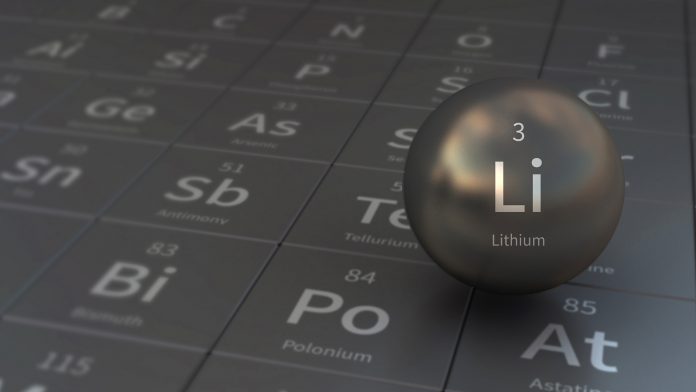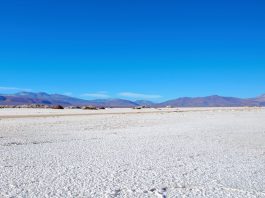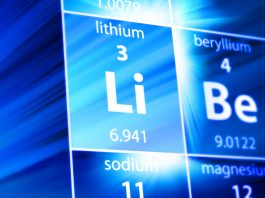Lithium Power International and its subsidiary Minera Salar Blanco have welcomed Chile’s new National Lithium Policy, saying that it will help to build legal certainty and take advantage of a historic opportunity.
After the Chilean Government announced the National Lithium Policy, the company stated that it “draws a scenario with clear short, medium and long-term objectives term, confirming legal certainty and ratifying a clear institutional framework for the rapid growth of investment in the industry.”
The Policy contains elements that are key to the evolution of the lithium sector, including the promotion of public-private partnerships, focus on research and technological development, the inclusion of the territories, and high sustainability standards.
The new National Lithium Policy is different from the position of previous administrations – being the result of a consultation process with a wide variety of stakeholders nationally and internationally. It has also taken into consideration the objectives of the Chilean State, including its role to participate in the efficient and rapid development of the lithium industry. This is of strategic concern both to Chile and the world as society moves towards electrification.
How will the company’s projects benefit from the Lithium Policy?
Cristóbal García-Huidobro, CEO of Lithium Power International and General Manager of Minera Salar Blanco, said: “This is good news for the country. The Policy determines clear general guidelines, which will give way to various projects in the existing salt flats network, incorporating the necessary competition in the industry and accelerating innovation and adoption of new standards for lithium projects in Chile.”
García-Huidobro continued: “For our company, the Lithium Policy comes to ratify and support what has been done over seven years of work on our Blanco Project in Maricunga.
“This project advanced not only in setting new technical and environmental standards in its development but also followed social principles such as transparency, respect, and justice, thus defining a new standard of relationship with communities.”
Operations at the Minera Salar Blanco project, which is expected to commence this year, will clearly reflect elements outlined in the Policy. The project has also received environmental approval, which included an indigenous consultation process under ILO Convention 169.
“We see a historic opportunity today for Chile, and the Lithium Policy will speed up public-private agreements with real projects such as Minera Salar Blanco in Maricunga, where there is already a CEOL,” explained García-Huidobro.
“This will generate new resources for the state and also channel essential resources for the regions where they are located and their communities. We are sure that Minera Salar Blanco will become the third player in the lithium industry in Chile in the short term after more than 35 years.”
How does the new policy relate to the Maricunga project?
With regards to the inclusion of communities and the environmental and technical aspects mentioned in the new Lithium Policy, LPI’s Maricunga Stage One project development serves as an example by incorporating all social and community agreements as an integral part of its environmental permit.
This includes Maricunga being one of the few projects in Chile with a comprehensive indigenous consultation process executed by the government under the ILO Convention 169, defining a new standard of social relationships. The company is proud of these achievements in promoting community participation over the long-term.
The Maricunga project has established broad ranging sustainable development initiatives, which sets a unique and complete ESG profile standard for the future of the project. LPI’s corporate vision aims to make the Maricunga Project one of the first lithium operations globally to achieve carbon neutrality.
Lithium Power International’s Director and MSB’s Chairman, Russell Barwick, commented: “While a central part of the strategy focuses on current operations and future exploitation of the Atacama Salar, there is also an outline on the future development of projects in other Chilean Salars. This is the case with our flagship Maricunga Project, which is the largest, most advanced, and fully permitted pre-construction lithium project in Chile.”
How will the Chilean Government become involved in the lithium industry?
As part of the long-awaited National Lithium Policy, the Chilean Government will seek to take control of the industry, as it is currently experiencing a boom in the face of high prices in international markets.
The 100% state-owned National Lithium Company will be created within this framework. This company will be in charge of exploiting the salt flats under a public-private articulation that always considers the State as the controller of the business.
President Boric stated: “The State of Chile will fully respect what is established in the current contracts. In other words, anticipated participation in the Atacama salt flats will be the result of an agreement with those who currently have the rights to explore these deposits.”
The National Lithium Policy will be developed in two phases, with the first occurring before the establishment of the National Lithium Company and the second afterwards. This is because creating a state company is challenging, requiring a qualified quorum of 4/7 in Congress. However, the government wants to save time and capitalise on the vast potential of the lithium market.
Boric concluded: “For the state to become actively involved in the entire lithium cycle, in the second half of this year, after the dialogue that we will hold with the different communities that coexist with the salt flats, we will send Congress the bill that creates the National Lithium Company.”
The National Lithium Policy was created in the hopes of Chile becoming the largest lithium producer in the world.








